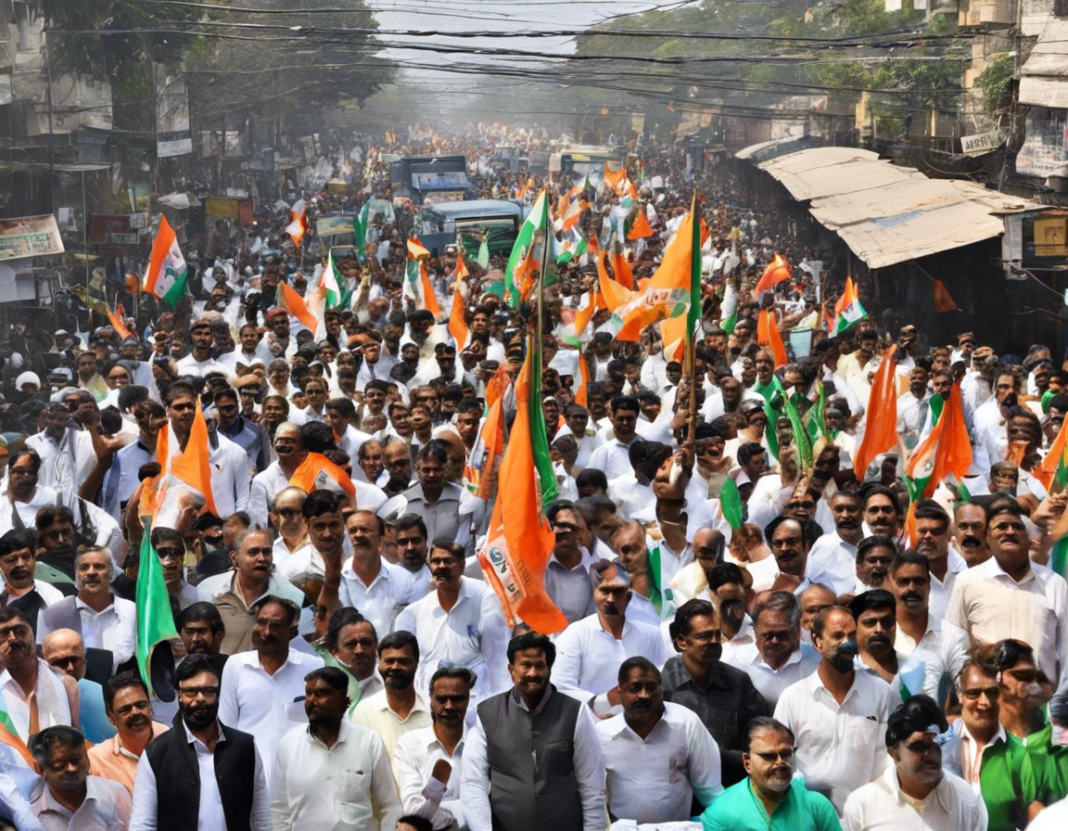Introduction
Bharat Bandh, a term that often reverberates across India, holds profound significance in the country’s socio-political landscape. The term loosely translates to ‘India Shutdown’ and is a form of protest where various political parties, trade unions, and social groups unite to enforce a nationwide strike. This strike aims at bringing the entire nation to a standstill, showcasing dissent against government policies or advocating for various demands.
History of Bharat Bandh
The history of Bharat Bandh dates back to the pre-independence era when Mahatma Gandhi employed the strategy of nationwide strikes to oppose British colonial rule. Post-independence, this form of protest continued to be utilized by various political parties and social movements to express their grievances and demands.
Significance of Bharat Bandh
1. Political Pressure: Bharat Bandh serves as a powerful tool for opposition parties to exert pressure on the ruling government. By orchestrating a successful shutdown, these parties can highlight public dissatisfaction and challenge the government’s credibility.
2. Solidarity: Bharat Bandh unites diverse groups under a common cause, showcasing solidarity across various segments of society. This cohesion amplifies the impact of the protest and conveys a strong message to the authorities.
3. Economic Impact: The nationwide strike disrupts normal functioning, leading to economic repercussions. Industries, businesses, and daily wage earners face financial losses, compelling the government to address the underlying issues to restore economic stability.
4. Policy Reforms: Bharat Bandh often serves as a catalyst for policy reforms. The widespread disruption compels the government to revisit its decisions, consider public demands, and initiate dialogues for potential solutions.
5. Public Awareness: The mass mobilization and media coverage during Bharat Bandh bring pertinent issues to the forefront, raising public awareness and fostering debates on critical matters affecting society.
6. Government Accountability: By subjecting the government to intense scrutiny and public outcry, Bharat Bandh reinforces the principles of democratic accountability. It reminds the ruling authorities of their responsibility towards the citizens and prompts them to address grievances promptly.
Challenges and Controversies
1. Disruption of Daily Life: While Bharat Bandh is a potent form of protest, it often disrupts the daily lives of ordinary citizens. Transportation, businesses, and essential services come to a halt, causing inconvenience and financial losses to the common populace.
2. Politicization: The phenomenon of Bharat Bandh is susceptible to politicization, with some parties using it as a tool for mere political mileage rather than genuine advocacy. This dilutes the essence of the protest and undermines its credibility.
3. Law and Order Concerns: The enforcement of Bharat Bandh sometimes leads to law and order challenges, with reports of violence, vandalism, and clashes between protestors and law enforcement authorities. Maintaining peace and security during such strikes is paramount.
4. Impact on Economy: The economic repercussions of Bharat Bandh, though a means to press for demands, can adversely affect the country’s economy. Disrupted supply chains, financial losses, and investor confidence are some of the challenges that need to be addressed post the protest.
5. Public Perception: While Bharat Bandh aims at amplifying public voices, its efficacy in garnering mass support and shaping public opinion varies. Perception play a crucial role in determining the success and impact of such protests.
Frequently Asked Questions (FAQs)
1. What is the objective of Bharat Bandh?
The primary objective of Bharat Bandh is to showcase dissent, press for demands, and bring attention to critical issues through a nationwide strike that disrupts normal activities.
2. How are Bharat Bandhs organized?
Bharat Bandhs are typically organized by political parties, trade unions, or social movements, which mobilize support, disseminate information, and coordinate the shutdown of various services and sectors across the country.
3. Are Bharat Bandhs effective in bringing about change?
While Bharat Bandh can influence government decisions and policies by exerting pressure, their effectiveness in bringing about tangible change varies depending on factors like public support, political will, and the nature of demands.
4. What are the legal aspects of participating in Bharat Bandh?
Participating in Bharat Bandh is a form of civil disobedience and peaceful protest protected under the Indian Constitution’s Right to Freedom of Speech and Expression. However, individuals must adhere to the legal boundaries and refrain from engaging in violent activities.
5. How can individuals prepare for Bharat Bandh disruptions?
To prepare for Bharat Bandh disruptions, individuals can stock up on essentials, plan alternative routes for travel, stay informed through reliable sources, and ensure personal safety during the strike period.
6. How do authorities respond to Bharat Bandh protests?
Authorities respond to Bharat Bandh protests by deploying law enforcement personnel to maintain peace and order, engaging in dialogues with organizers to address grievances, and restoring normalcy post the protest through necessary interventions.
7. What role does media play in covering Bharat Bandh events?
Media plays a crucial role in covering Bharat Bandh events by disseminating information, providing real-time updates, capturing the impact on various sectors, and facilitating public discourse on the underlying issues that led to the protest.
8. How do Bharat Bandhs impact the common populace?
Bharat Bandhs impact the common populace by disrupting daily routines, affecting access to essential services, causing financial losses to businesses and individuals, and influencing public opinion on the issues raised during the protest.
9. Are there alternative forms of protest besides Bharat Bandh?
Yes, there are alternative forms of protest besides Bharat Bandh, such as rallies, demonstrations, signature campaigns, social media activism, and legal petitions, which individuals and groups can utilize to voice their concerns and advocate for change.
10. Can Bharat Bandh lead to long-term systemic changes?
While Bharat Bandh can catalyze discussions, policy revisions, and immediate responses from the government, achieving long-term systemic changes requires sustained efforts, collaborations, and holistic approaches beyond one-time protests.
In conclusion, Bharat Bandh stands as a potent expression of people’s power, a catalyst for change, and a testament to the democratic ethos of India. While it faces challenges and controversies, its historical significance and ability to mobilize masses in solidarity underscore its enduring relevance in shaping the country’s political landscape.
